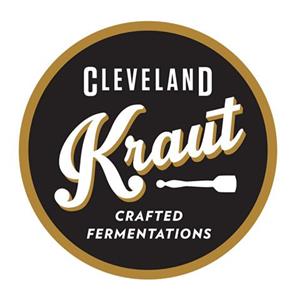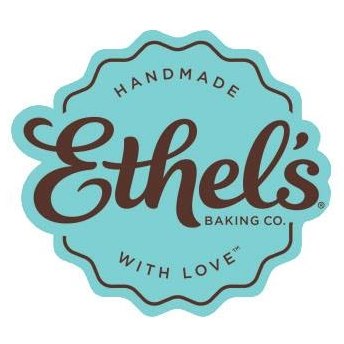NOSH Live Day Two Recap: Acid League And Whole Foods Announce Continued Collaboration

Natural food companies convened for day two of NOSH Live Winter 2021 today in Santa Monica to discuss how brands can position themselves for success with regards to the current state of the industry including continued supply chain constraints, shifting consumer interests and a dynamic landscape for brand building.
In Sickness and In Health: Partnering With A Retailer For Innovation & Growth
Acid League co-founders Allan Mai and Cole Pearsall and Chrisitina Pearson, Global Category Manager at Whole Foods, took to the stage announcing Acid League will be launching 12 new sauces and condiments with the retailer early on in the new year. The new products include everything from an 1860s cocktail sauce to a modern take on ketchup. In tandem with the new product announcement, the trio also discussed how they have navigated their brand-retailer partnership and how a sense of positivity, clear and consistent communication and a willingness to compromise allowed this partnership to grow and thrive.
The acid-based condiment and beverage brand first entered Whole Foods in 2019, only mere months after its launch, and at a time where the brand hadn’t yet developed a website or even a commercialized product. The brand’s vinegar products were the first on shelf, launching nationwide with the retailer. At that point, Acid League also invested in developing its online presence and its co-founder said they have continued to use this platform as a vehicle to fuel brand awareness which then bolsters support for retail expansion.
According to Pearsall, Whole Foods essentially serves as the company’s “testing ground” for new products, noting that launching exclusives with the retailer has given them valuable data and proof of concept within the category. By launching these exclusives, Pearsall said they have elevated the brand’s other retail partnerships because they are able to pitch new products with a sense of confidence, data and a solid proof of concept behind its more unique innovations.
However, the relationship isn’t one sided. Pearson emphasized that for Whole Foods, Acid League’s in-house operations brings a sense of stability to the shelf, especially over the course of the past year where manufacturing disruptions impacted every category. She highlighted the company’s ability for the most part to avoid out-of-stocks and, when they couldn’t, easily communicate that production might be strained.
Mai also cited in-house manufacturing as a large reason the brand has been able to support its rapid growth, but believes trusting its own operations was the core driver for that stability. He explained that trust “at every step in the production process” was made possible at a “granular-level” because of its in-house ops.
“We understand the implications across the business, supply chain and what it really will mean to execute on new products,” added Pearsall.
This also streamlines the innovation process. The trio then discussed about when Whole Foods comes to them asking for a new product — whether that be a high-velocity SKU or a test-run of an up and coming flavor — the brand is able to execute that request in not only a timely fashion, but also enable both brand and retailer to have an active role in the creation process.
According to Pearson, when it comes to conversations around compromises and innovation, its awareness to and the balance of personalities within the partnership that has made them so successful.
Pearsall, who also serves as Chief Sales Officer for the company, said he is the lamb in conversations while Mai, who serves as Chief Product Officer is the “wise-owl” and Scott Friedmann, the company’s CEO, and Pearson are the tigers. Although this metaphor may sound like a recipe for conflict, he concluded that the awareness of each member’s respective role keeps conversations streamlined decision-making and allows them to maintain a sense of whole the brand is outside of the products they develop.
Data and A Dash of Creativity: Rethinking the C-Store Channel with Foxtrot
Corner stores are for more than just staple products and quick shopping experiences, according to Ashley Alden, VP of Merchandising at Foxtrot. Alden sat down with NOSH editor Carol Ortenberg to discuss how the company is modernizing the approach to the traditional corner store through an innovative retail and delivery format catering to all-day use occasions and the contemporary consumer.
The brick-and-mortar Foxtrot locations offer a typical retail experience with an data-curated array of products on shelf. In addition to retail, the store also has a food service component, “transitioning from coffee shops to a wine bar throughout the day” said Alden. This brings in consumers who may just want to grab a cup of coffee to then discover the wider variety of services this modern c-store has to offer. The stores also serve as “micro-fulfillment centers” enabling Foxtrot to deliver products across its CPG and foodservice portfolios in under an hour.
However, when it comes to growth, Alden believes it is Foxtrot’s relationship with its brands and consumers that allowed the company to expand at such a rapid pace. She emphasized the company’s “commitment to community” and highlighted how the retailer has also taken an active role in shaping local brands so they would be positioned for success once they reach the shelf.
Currently Foxtrot operates 15 retail locations in cities including Chicago, Washington D.C. and Dallas and over the next year, 50 new Foxtrot locations are set to pop up in cities such as New York, Los Angeles and Boston. Alongside this expansion Alden said it’s close-knit team, which currently includes only three category managers responsible for bringing in and managing brands, will also undergo a significant expansion.
Alden also highlighted the importance the retailer has placed on private label, but was careful to note that the goal is not to bring in new, innovative brands to then replicate the product with a private label offering. Instead, Alden explained how private label products are a mode for Foxtrot to offer its own take on traditional products while also guaranteeing 40% of its shelf space goes to outside brands. She highlighted the retailer’s close relationship with the brands it carries and noted its most recent co-branded ice cream with Coolhaus that launched over the summer.
Although Alden said the easiest way for a new brand to make it to Foxtrot’s shelves is through a shared investor or connection with another brand already on its shelf, she also announced it will open up submissions for its second “Up and Coming” competition which previously brought about 30 new brands into the retailer’s network.
Other notable session takeaways:
- Growing as a leader also can serve as an opportunity to grow a brand, in the case of Jolie Weber, CEO of bakery brand Lenny & Larry’s. Beginning her foray in executive leadership at Wise snacks, Weber said when she assumed the role of Lenny & Larry’s CEO in February 2020, her ability to listen to her team and willingness to admit her lack of experience in certain areas was her key to success as the company’s “COVID-CEO.” Weber also emphasized she was able to position herself as an effective leader because she owned her mistakes and made a conscious effort to address where and if her team members were effective in their roles.
- Two of the industry’s most notable content creators sat down to discuss the link between driving sales and developing a brand that authentically and organically resonates with consumers. David Greenfeld, Co-founder and CEO, Dream Pops and Jing Gao, Founder & CEO, Fly By Jing explained how lower-quality, user generated content (UGC) has a greater impact on today’s consumer with a heavy emphasis on the Gen Z consumer. Greenfield and Gao agreed that producing high-quality content for social platforms like TikTok is the least effective way to garner organic impressions and both CEOs also emphasized the importance of sharing the company’s failures and wins equality on social platforms.
- Jill Bommarito, President & Founder, Ethel’s Baking Company and Mac Anderson, Co-founder and CMO, Cleveland Kitchen discussed how staying true to their respective company’s local roots has positioned their brands for national expansion. Anderson highlighted how that local tie resonated with investors later on, “adding benefit beyond the checkbook” and creating a solid selection of advisors, which he said was more instrumental to the brand’s growth than any capital they have raised.
- Co-founder of Emmy’s Organic, Samantha Abrams and the company’s CEO, Bill Kelly broke down the non-traditional route this entrepreneurial brand has navigated as it grew out of Abrams’ kitchen and across America. Kelly and Abrams spoke candidly about how their relationship evolved to the point where Abrams and fellow co-founder and husband, Ian Gaffney, were confident that Kelly was the right person to then lead the brand they had built.






















